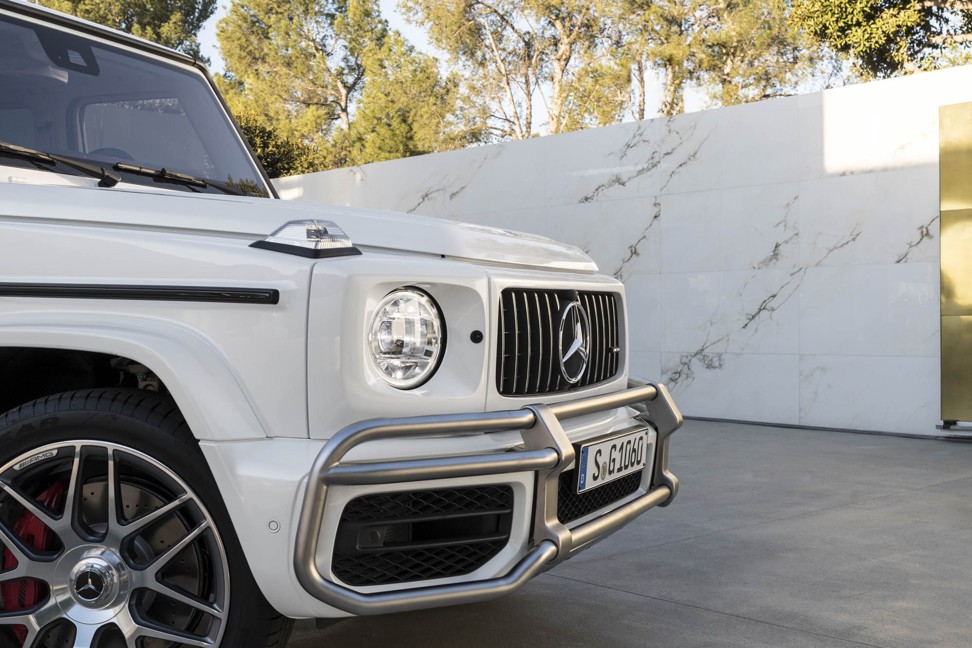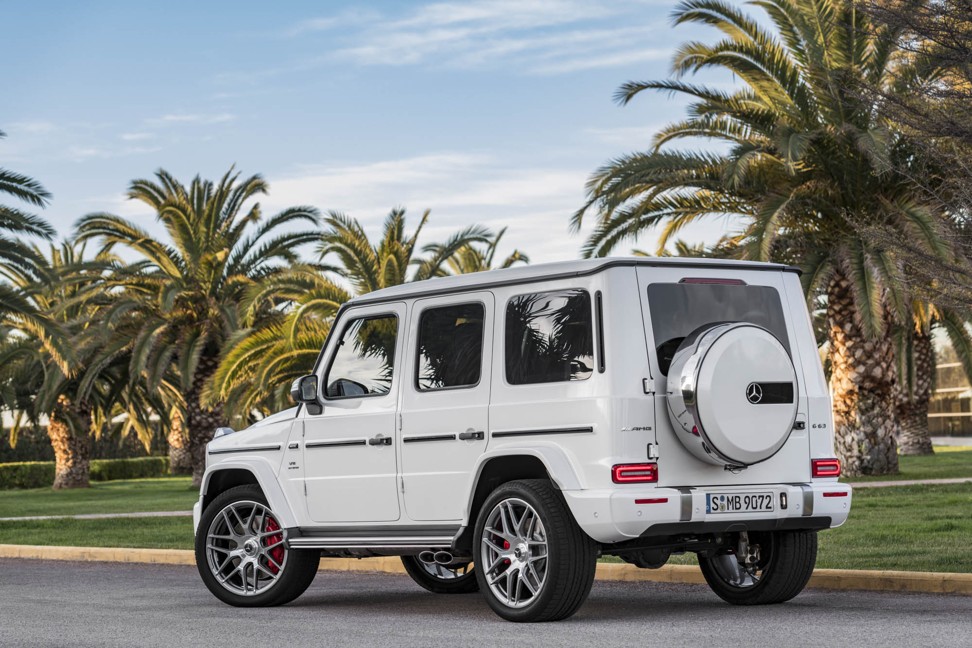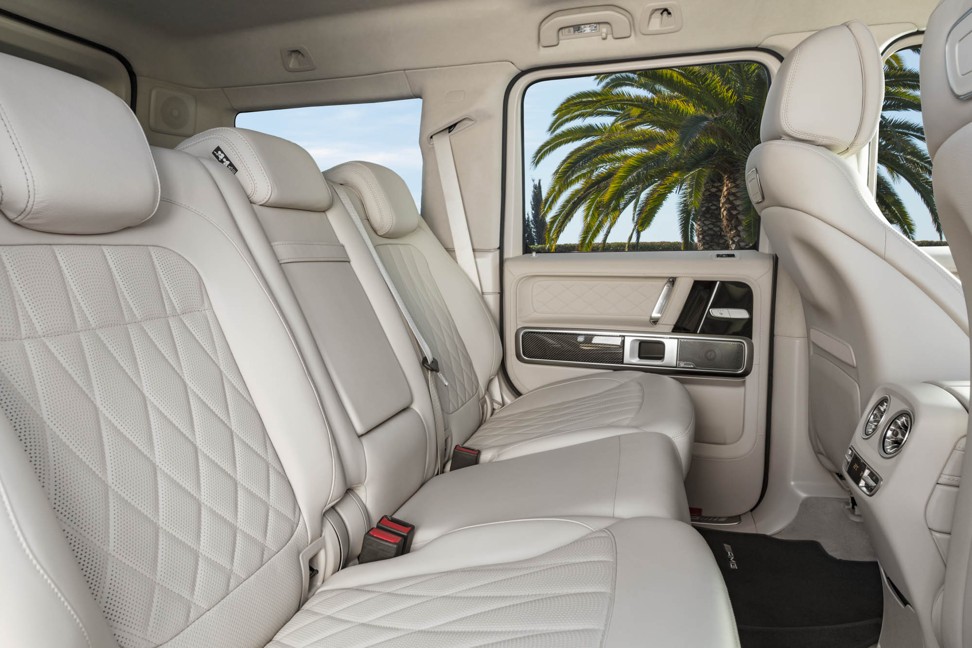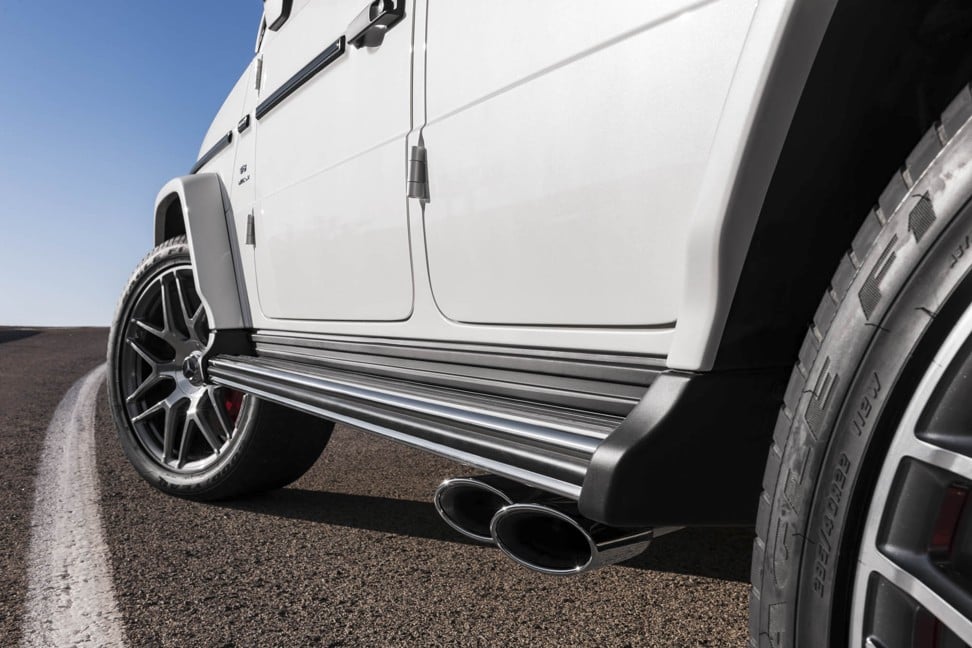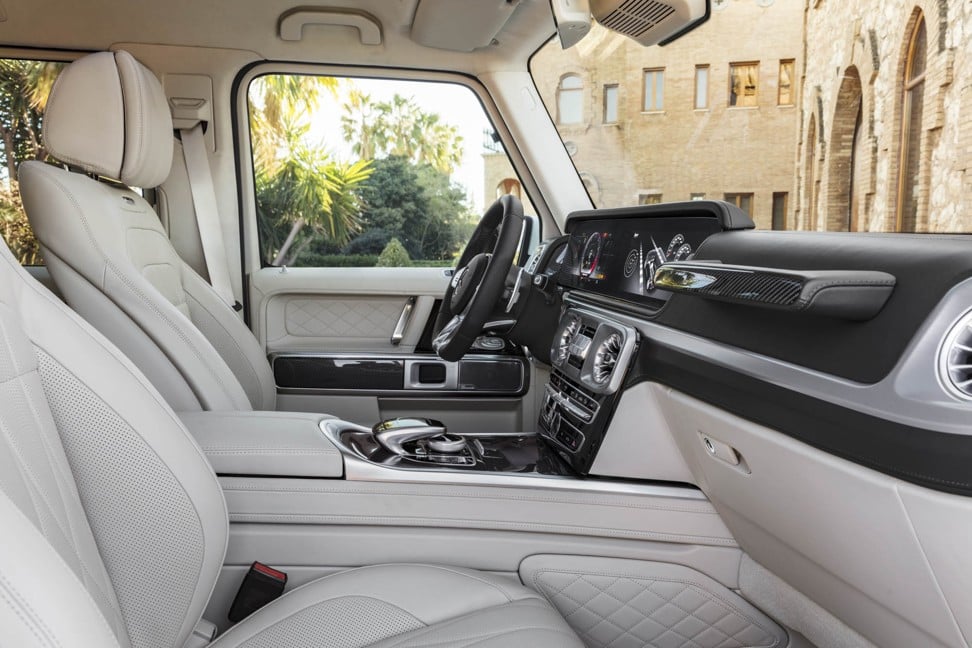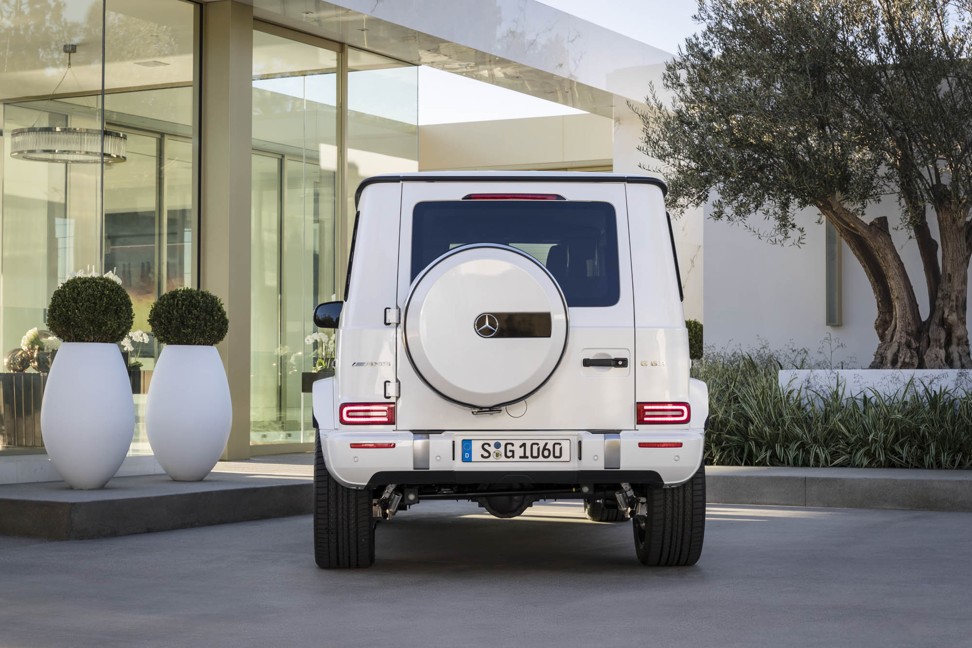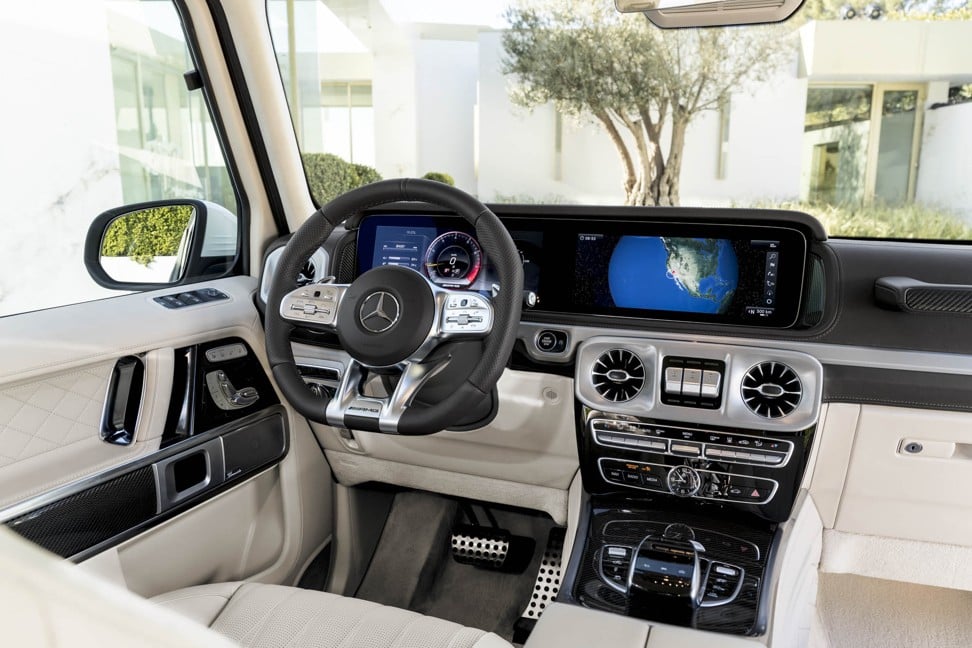Is Mercedes-Benz’s luxurious new G-Wagen worth US$130,000?
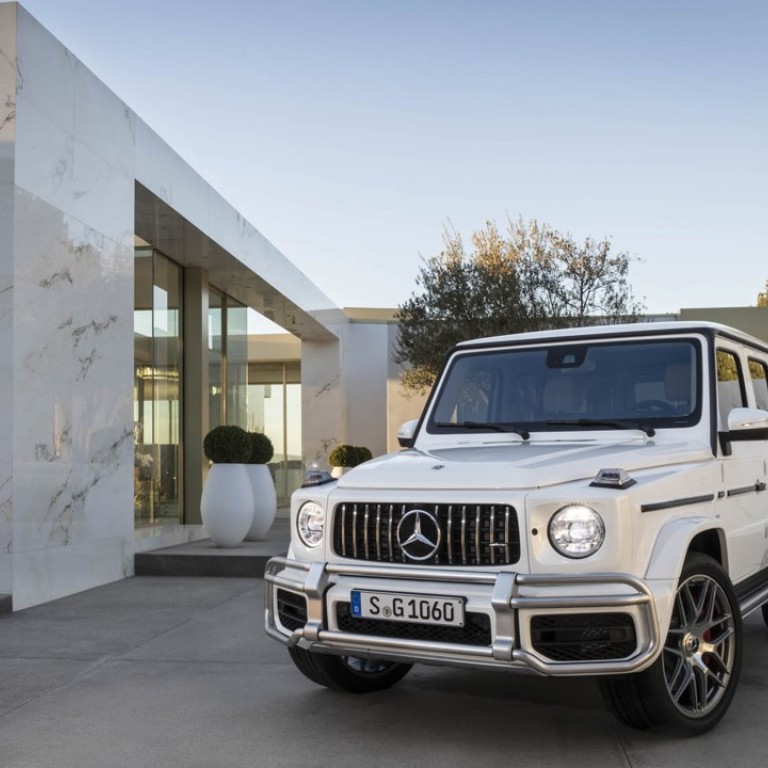
Original report by Hannah Elliott
When Mercedes-Benz launched the 2019 G-Class SUV in Detroit – the centre of America’s motoring industry – it felt the need to do so with tremendous fanfare: a party for 2,000 people, indoor pyrotechnics, Arnold Schwarzenegger. It was huge.
And it should have been. It is the first time in the 40-year existence of the G-Wagen that the brand has totally revisited its iconic lines and engineering.
As Dieter Zetsche, chairman of Daimler put it, even the biggest diamond in the crown needs a polish now and then.
So of course I have been dying to test it out for myself.
The tall metal box known as the G was made for military purposes, then produced for the public by the late 1970s and designed to venture safely and aggressively into the bush.
Last week in Europe, I drove a black G550 over tiny city streets in Austrian villages and for hours on the German autobahn.
The car was just as square as before, with a petrol mileage rate that is sacrilegious to everything we now hold dear.
The suspension is (still) soft enough to make you question whether anything had been changed in that department at all.
Yet, it remains endearing, as equally at home on the streets of Miami or in the Mojave Desert – and more at home in either than ever before.
Minor adjustments make big differences
From the exterior, changes to the G-Wagen look minute: there are two new 19-inch (48.2-centimetre) and 20-inch wheel choices, 24 fresh exterior paint choices, and a new LED headlight system with integrated daytime running lights, which is the easiest way to tell between the two versions.
There is also slightly improved ground clearance – to 9.5 inches – and improved fording depth, now 27.6 inches (an extra 3.9 inches) when driving through water and mud.
And the back tyre mounted as a spare wheel has been pushed over to the left side to improve rear visibility. That is about it. Visually at least.
Inside – both behind the driver’s wheel and from the passenger and back seats – is where the more significant changes become apparent.
The first thing you will notice is that there are several inches more space in both the front and back, thank goodness (the G is notoriously straitjacket-small when it comes to legroom, though its headroom is beaten by none).
The Nappa leather seats with all-new interior upholstery colours and diamond stitching are incredibly supportive and blessedly high – cruising at 120mph, I felt like the pope
There are also more slots for storing cords, cups, sunscreen, phones, and all the rest of the paraphernalia one takes on safari or, you know, shopping.
Split-folding rear seats are standard, which came in handy for shoving in baggage for our trip – three adults planning to cover five countries in as many days.
The overall extra dimensions come in at 2.1 inches longer and 4.8 inches wider than the predecessor, yet 375 pounds (170kg) lighter. That is quite a feat in itself.
I also liked the new interior finishings, which felt modern but will be familiar to anyone attached to what the G has looked like since the 1990s.
The dashboard and touchpad and bigger, new 12.3-inch central display screen are all updated to join us in the 21st century – they look smoothly modern but not fussy like some of the other fronts can get in the Mercedes line.
Three-zone climate control, 64-colour ambient lighting, Burmester Surround Sound, and a power-sliding sunroof all make the cabin feel thick with the trappings of luxury.
What is more, the Nappa leather seats with all-new interior upholstery colours and diamond stitching are incredibly supportive and blessedly high – cruising down the A8 at 120mph (193km/h), I felt like the pope.
On-road performance
Thank the new nine-speed automatic transmission (a step up from the previous seven-speed) and new independent front suspension, plus the new electromechanical steering, for the smooth ride. Indeed, the most impressive thing about this G is that it feels more like a car than ever before.
I know the purists will blanch at that statement, since this is a vehicle first developed for farmers and hunters and ranchers and soldiers who needed to use it on rough terrain, but it is true.
With a 416-horsepower V8 engine, and a top speed of more than 150mph, the G550 had the shocking ability to blast past the BMWs and Audis also bombing down the autobahn on the way to the German city of Stuttgart.
It brakes like the bang of a gavel and barrels down the road with so much torque, even in the higher gears, it could give you a God complex.
It is also more refined to drive than its predecessor, just smoother all around with sleeker handling and a generally more elegant feel.
It has a modern, variable-ratio rack-and-pinion steering system with adaptive electric power assist that the earlier version never had.
Do not look for a big guttural roar from this G, nor a tight-as-nails ride; but do expect a thoroughly current vehicle with all the attributes of a luxury machine inside and eager, powerful performance under the bonnet.
And that is OK, because, to be honest, most Americans who buy this vehicle will not use it off-road, even though the less expensive 550 is arguably better-suited for that than the AMG.
The US$130,000-or-so 550 has all the traditional off-road features as the AMG, such as a ladder frame; improved ground clearance; low-range gear box; and three 100 per cent differential locks in centre, rear, and front that allow the driver to enhance agility over the most uneven terrain, but for a lower price. It costs at least US$20,000 less than the AMG and is similarly nimble under slower speeds. Overall, that makes it better value.
However, the vast majority of buyers (as many as 90 per cent, according to one employee at Mercedes-Benz) will choose the AMG version, which is faster and more powerful on the open road.
(Let us remember that these days, even at the top-end price of US$225,000 or so, the AMG version is well within the price spectrum of other luxury SUVs such as Bentley, Lamborghini, and Rolls-Royce.) The G63 version of the AMG offers a 4-litre V8 that gets 577 horsepower and 627 pound-feet of torque, that nine-speed transmission, dynamic ride select, a performance exhaust system with side pipes, a performance steering wheel, and 22-inch rims, not to mention an AMG-specific grille and flared wheel arches.
Zero to 60mph is 5.3 seconds. That grille and arch and side pipes mean you will know the AMG G when you see it, or when it passes you, whichever comes first.
But the 550 will get you plenty of attention, too.
In today’s market full of expensive, interchangeable SUVs, all versions of the G-Wagen stand out like jewels. Look for them in showrooms – and shopping malls – later this year.
Want more stories like this? Sign up here. Follow STYLE on Facebook, Instagram and Twitter

In market full of expensive, interchangeable SUVs, all versions of German car maker’s endearingly boxy G-Class vehicle will stand out like jewels
